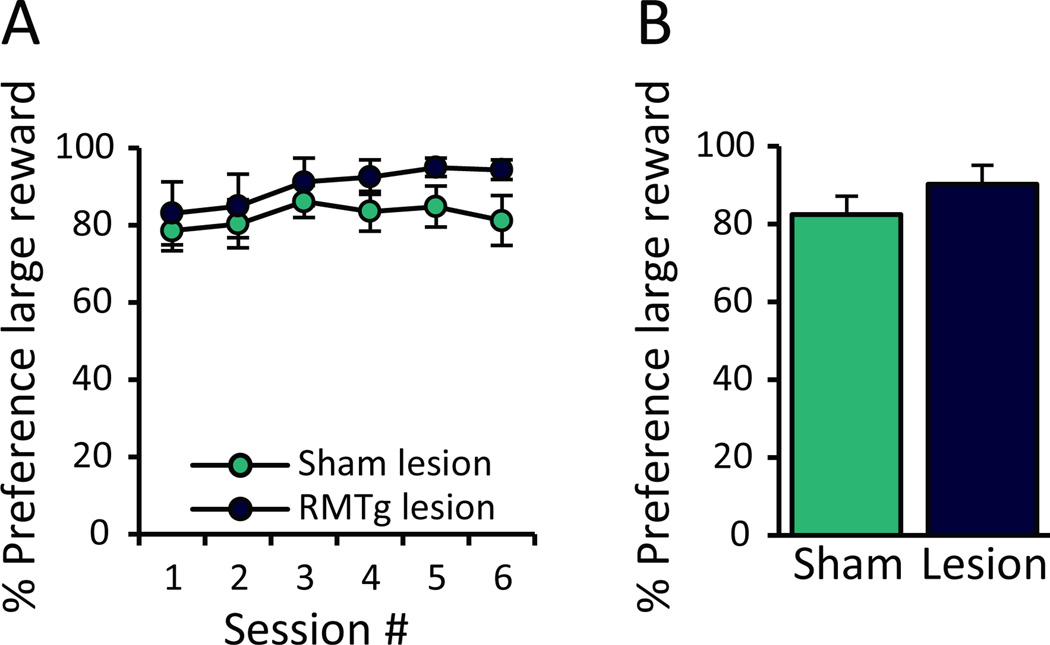Figure 5.
The ability to respond flexibly to changing reward contingencies was not affected by RMTg lesions. RMTg- and sham-lesioned rats (n=6, 7) were trained to discriminate between two levers that yielded either a large or a small reward in the absence of punishment, but the location of the two reward options was randomly selected across 4 blocks of 20 trials each (each block consisting of 12 forced and 8 free choice trials). (A) There was no difference in mean preference for the large reward across any of the 6 test sessions, (B) nor was there any difference in large reward preference when averaged across all test sessions.

